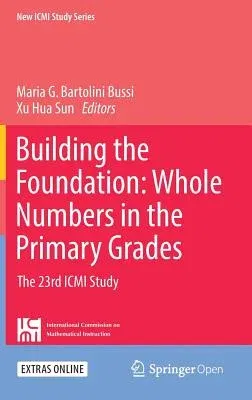Building the Foundation: Whole Numbers in the Primary Grades: The 23rd ICMI Study (2018)Hardcover - 2018, 16 April 2018

Qty
1
Turbo
Ships in 2 - 3 days
In Stock
Free Delivery
Cash on Delivery
15 Days
Free Returns
Secure Checkout

Part of Series
New ICMI Study
Print Length
536 pages
Language
English
Publisher
Springer
Date Published
16 Apr 2018
ISBN-10
3319635549
ISBN-13
9783319635545
Description
Product Details
Book Edition:
2018
Book Format:
Hardcover
Country of Origin:
NL
Date Published:
16 April 2018
Dimensions:
23.39 x
15.6 x
3.18 cm
ISBN-10:
3319635549
ISBN-13:
9783319635545
Language:
English
Location:
Cham
Pages:
536
Publisher:
Series:
Weight:
970.69 gm